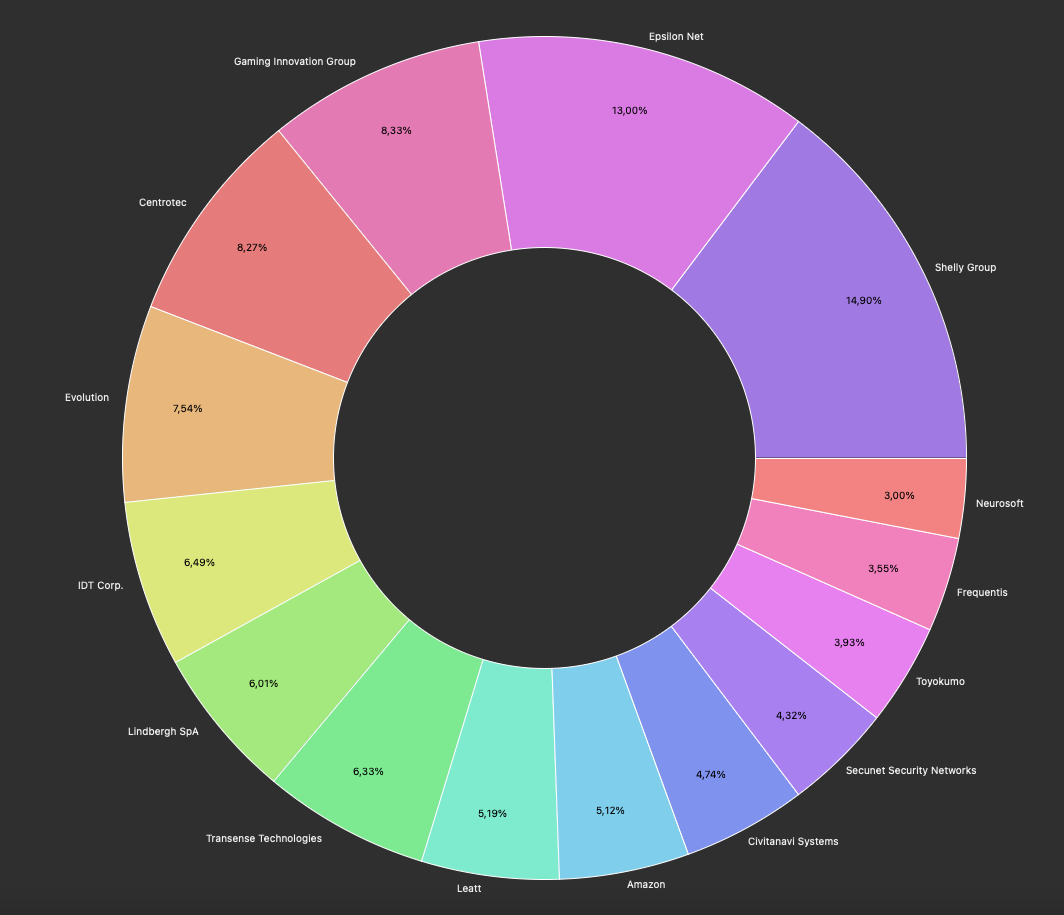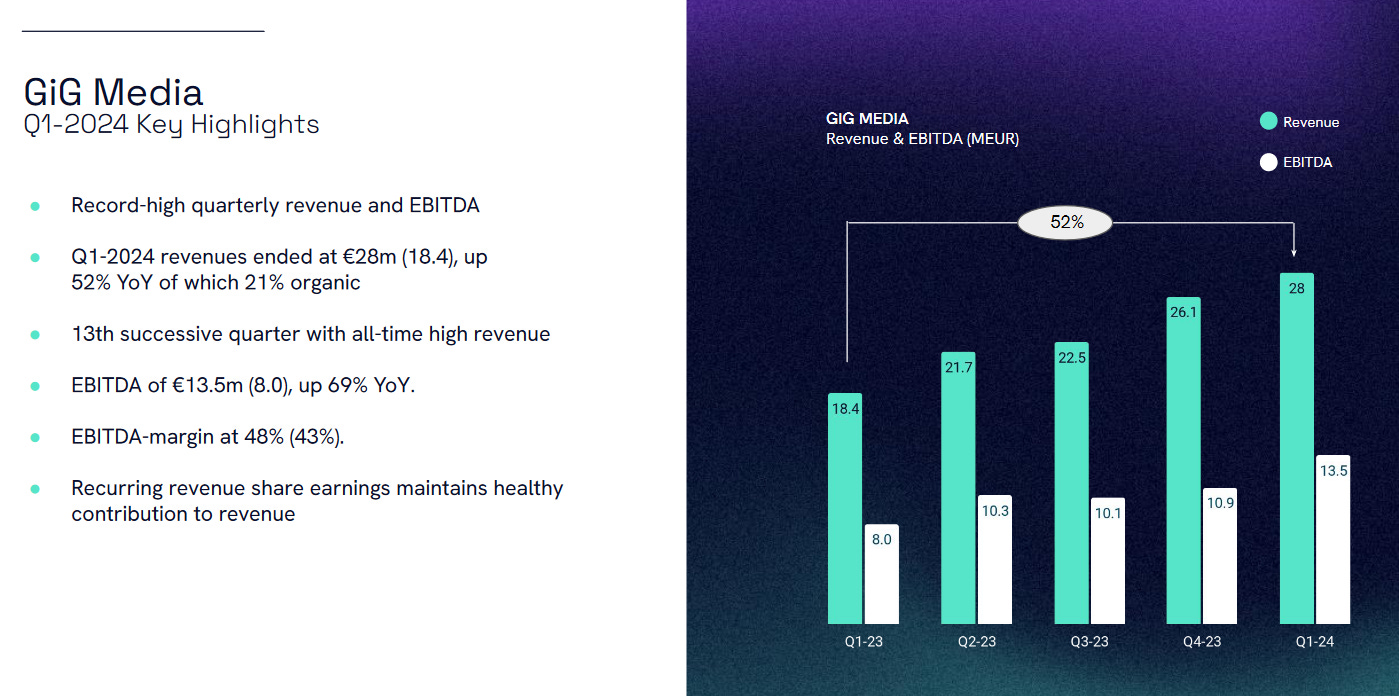Unearthing Green Gold: A Look at Underfollowed Recycling Stocks
The world is drowning in waste, a stark reality that’s pushing recycling to the forefront of global sustainability efforts. While household names in waste management often grab headlines, there’s a fascinating and often overlooked corner of the market: underfollowed recycling stocks. These are the companies, sometimes smaller, sometimes specialising in niche areas, that are quietly innovating and growing, offering potentially significant opportunities for savvy investors. For those looking to align their portfolios with environmental consciousness and seek out long-term growth, delving into these less-publicised recycling firms can be a rewarding venture.
The recycling industry is far more complex and dynamic than simply picking up bins. It encompasses a vast array of technologies and processes, from traditional mechanical recycling of plastics and metals to cutting-edge chemical recycling, waste-to-energy solutions, and the burgeoning field of e-waste processing. As regulatory pressures intensify and consumer demand for sustainable products grows, the need for efficient and advanced recycling solutions is becoming critical. This rising tide lifts all boats, but some of the most exciting potential lies with those companies that are yet to capture widespread investor attention.
Why Underfollowed? Unpacking the Investment Opportunity

So, why do some promising recycling companies fly under the radar? Several factors contribute to a stock being “underfollowed.” Often, these companies are smaller in market capitalization, meaning they aren’t typically covered by major institutional analysts. Their operations might be highly specialized, focusing on a particular type of waste or a specific recycling technology, which can make them less universally appealing to broad market investors. Furthermore, some might be based in regions or have business models that are less familiar to international investors, leading to lower visibility.
However, these very characteristics can be their strength. Smaller companies can be more agile, able to pivot quickly to new opportunities or adapt to technological advancements. Specialised firms can develop deep expertise and proprietary technologies, creating a significant competitive advantage in their niche. The lack of extensive analyst coverage can also mean that their true value isn’t fully reflected in their stock price, presenting an opportunity for investors who do their homework.
The Diverse Landscape of Recycling: Beyond the Bin
To understand the potential of underfollowed recycling stocks, it’s crucial to appreciate the sheer diversity within the sector. It’s not just about collecting rubbish; it’s about transforming waste into valuable resources.

Traditional Recycling Innovators
Even in established areas like plastics and metal recycling, there’s constant innovation. Companies are developing more efficient sorting technologies, improving the quality of recycled materials, and finding new applications for what was once considered waste. Think about firms that are perfecting the art of turning mixed plastic waste into high-quality resins, or those that are extracting rare metals from industrial by-products. These companies might not be glamorous, but their improvements directly impact the circular economy.
E-Waste Revolutionaries
The explosion of electronic devices has created an enormous problem: e-waste. This complex stream of discarded gadgets contains valuable metals, rare earth elements, and hazardous materials. Companies specializing in e-waste recycling are employing sophisticated processes to safely extract these components, preventing pollution and recovering precious resources. Many of these firms operate in a highly technical space, often with proprietary methods for dismantling, shredding, and separating materials. As the world becomes more digital, the importance of e-waste recycling will only grow, making these specialists particularly intriguing.
Chemical Recycling Pioneers
Chemical recycling is a game-changer for plastics. Unlike mechanical recycling, which can degrade plastic quality over multiple cycles, chemical recycling breaks down plastics to their molecular building blocks, allowing them to be reformed into virgin-quality plastic. This opens up opportunities for recycling previously unrecyclable plastics, such as multi-layered packaging or contaminated materials. Companies investing heavily in developing and commercializing these chemical processes are at the forefront of a major shift in the plastic industry. While still in its early stages of widespread adoption, this technology holds immense promise.
Waste-to-Energy and Beyond
Beyond traditional and advanced material recycling, some companies are focused on converting waste into energy or other useful products. This can involve anaerobic digestion to produce biogas, incineration with energy recovery, or even turning organic waste into fertilizers. While waste-to-energy can be controversial due to emissions concerns, advancements in technology are making these processes cleaner and more efficient. Furthermore, the broader concept of transforming waste into valuable commodities, whether energy, chemicals, or agricultural inputs, represents a significant area of growth.

Identifying Potential Gems: What to Look For
When trying to unearth underfollowed recycling stocks, a discerning eye is essential. Here are some factors to consider:
Strong Niche and Proprietary Technology
Does the company have a unique approach or technology that gives it a competitive edge? This could be a patented process for recycling a difficult material, an exceptionally efficient sorting system, or a novel method for converting waste into a high-value product. A strong niche allows them to command better margins and resist competition.
Growing Market Demand
Is the specific type of recycling they do experiencing increasing demand? For example, the market for recycled plastics is being driven by corporate sustainability commitments and regulatory mandates. Companies in these high-demand segments have a natural tailwind.
Solid Management Team and Financials
Even for underfollowed companies, a competent management team with a clear vision and a track record of execution is crucial. Look for reasonable debt levels, consistent revenue growth, and a path to profitability, even if current profits are modest due to investment in growth.
Scalability of Operations
Can the company’s technology or business model be scaled up to meet larger demand? A great idea is only truly valuable if it can be implemented broadly. Look for evidence of plans for expansion, new facilities, or partnerships that indicate future growth potential.
Regulatory Tailwinds
Governments worldwide are implementing stricter recycling targets and promoting circular economy principles. Companies that are well-positioned to benefit from these regulatory shifts, perhaps by offering solutions that help businesses meet compliance, are likely to thrive.
Partnerships and Collaborations
In the recycling world, collaboration is key. Companies that form strategic partnerships with waste producers, manufacturers, or larger waste management firms can gain access to consistent feedstock, expand their market reach, and accelerate technology adoption.
Geographical Focus and Local Advantage
For UK-based investors, considering UK-focused companies can offer advantages in terms of understanding the local regulatory landscape and market dynamics. While many recycling challenges are global, specific waste streams and infrastructure can vary by region. Some underfollowed companies might have a strong regional presence, providing them with a local competitive advantage.
Risks to Consider
Of course, investing in underfollowed stocks, especially in a sector like recycling, comes with its own set of risks.
Volatility of Commodity Prices
The value of recycled materials is often tied to commodity prices, which can be volatile. Fluctuations in prices for plastics, metals, or paper can impact a recycler’s revenue and profitability.
Technological Obsolescence
The recycling industry is constantly evolving. A company’s cutting-edge technology today could be outdated tomorrow. Staying abreast of new innovations is crucial.
Regulatory Changes
While regulations can be a tailwind, they can also present challenges. New rules could require costly upgrades or alter the competitive landscape.
Capital Intensity
Many recycling operations require significant capital investment in machinery and infrastructure. This can lead to high debt levels and longer payback periods.
Competition from Larger Players
As the recycling market grows, larger waste management conglomerates might acquire smaller, innovative firms, or develop similar technologies, increasing competition.
Supply Chain Dependence
Recyclers are dependent on a consistent and quality supply of waste. Disruptions in waste collection or changes in waste composition can impact their operations.
Conclusion
The world’s pressing need for sustainable solutions makes the recycling industry a fascinating and potentially lucrative area for investment. While major players often dominate the headlines, a deeper dive into the market reveals a realm of underfollowed recycling stocks with significant long-term growth potential. These companies, often characterized by their specialized focus, innovative technologies, and regional strengths, offer an exciting opportunity for investors willing to undertake the necessary due diligence. By understanding the diverse facets of the recycling industry and carefully evaluating potential investments, individuals can not only seek financial returns but also contribute to a more circular and sustainable future. The challenge lies in identifying these hidden gems before they become mainstream, but the rewards, both financial and environmental, could be substantial.
5 Unique FAQs After The Conclusion
H2: How does a company being “underfollowed” benefit an investor?
Being “underfollowed” often means that a company’s stock price might not fully reflect its true value or growth potential. This can happen because major institutional investors or analysts haven’t extensively covered it, leading to less awareness and potentially a lower valuation. For individual investors who do their research, this can present an opportunity to buy into a promising company before it gains widespread recognition and its stock price rises accordingly.
H3: Are there specific types of waste that offer the most untapped potential for recycling companies?
While traditional waste streams like paper, plastic, and metal continue to evolve, some of the most exciting untapped potential lies in complex waste types. E-waste (electronics), textiles (clothing), and certain types of difficult-to-recycle plastics (like multi-layered films or contaminated materials) are areas where innovative technologies are emerging, offering significant opportunities for companies that can effectively process them into valuable resources.
H2: What role do government policies and regulations play in the success of underfollowed recycling stocks?
Government policies and regulations play a huge role. Stricter environmental laws, mandates for recycled content in products, and incentives for sustainable practices can create strong tailwinds for recycling companies. For underfollowed firms, favourable regulations in their specific niche or region can provide a significant competitive advantage and accelerate their growth, making them more attractive investments.
H3: How important is a company’s intellectual property (IP) or patents in the recycling sector?
Intellectual property, especially patents for novel recycling technologies, can be incredibly important. In a competitive and rapidly innovating sector like recycling, proprietary technology can provide a strong competitive moat, allowing a company to offer unique solutions, achieve higher efficiency, or process materials that others cannot. This can translate into higher margins and a stronger market position, which is particularly valuable for smaller, underfollowed companies seeking to carve out a niche.
H2: Beyond financial returns, what ethical considerations should investors keep in mind when looking at recycling stocks?
Beyond financial returns, ethical investors should consider a company’s true commitment to sustainability. Look for transparency in their recycling processes, verifiable environmental impact metrics, and ethical sourcing of materials. It’s important to ensure the company genuinely contributes to a circular economy and doesn’t engage in “greenwashing.” Researching their waste diversion rates, energy consumption, and any social initiatives can provide a more holistic view of their ethical standing.


